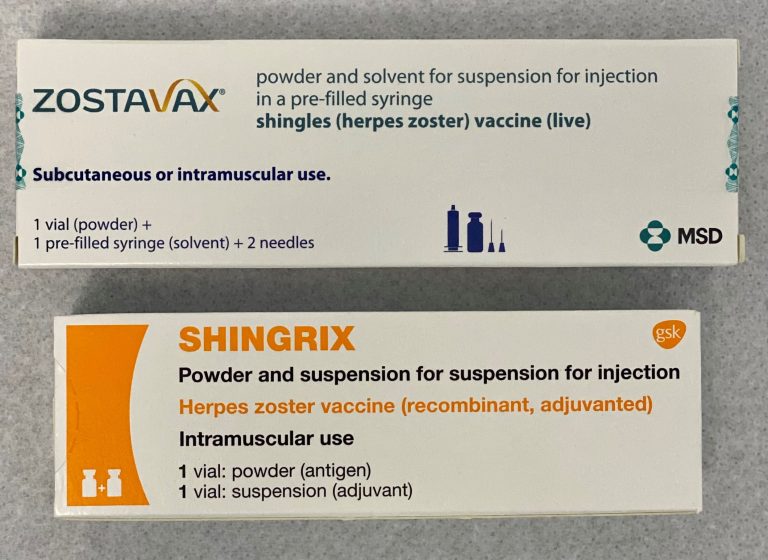GSK plc (LON/NYSE: GSK) presented positive results from the pivotal EAGLE-2 and EAGLE-3 phase III trials for gepotidacin, an investigational, first-in-class oral antibiotic with a novel mechanism of action for uncomplicated urinary tract infections (uUTI) in female adults and adolescents. The data were disclosed today in an oral presentation at the European Congress of Clinical Microbiology and Infectious Diseases (ECCMID) in Copenhagen, Denmark.
· Gepotidacin is a late-stage antibiotic in development in GSK’s growing infectious diseases portfolio
· EAGLE-2 and EAGLE-3 phase III trials met primary endpoint of non-inferiority to nitrofurantoin; EAGLE-3 demonstrated statistical superiority
· US FDA submission is planned for Q2 2023
These positive data highlight GSK’s world-leading infectious diseases portfolio, which represents about two-thirds of the Company’s pipeline. In addition, they reinforce GSK’s commitment to developing new antibiotics in high unmet medical need areas, such as uUTI. Today’s presentation follows the decision to stop the EAGLE-2 and EAGLE-3 pivotal trials early for efficacy following a recommendation made by the Independent Data Monitoring Committee in November 2022. The full results will be submitted for publication in a peer-reviewed scientific journal later this year.
Over half of all women are affected by uUTIs in their lifetime[1], with more than a quarter suffering from recurrent disease[2],[3],[4] , which can cause significant patient burden, including discomfort and restriction of daily activities. The number of uUTIs caused by resistant bacteria is increasing, which can result in higher treatment failure rates.[5]
Chris Corsico, SVP Development, GSK, said: “Despite uncomplicated urinary tract infections being one of the most common infections in women and mounting concern over rising resistance rates to existing treatments, there has been no new class of antibiotics for over 20 years. We believe that gepotidacin, if approved, will offer a much-needed additional oral treatment option for patients at risk of treatment failure associated with resistance or recurrence of uUTI. We are committed to working with global regulators to bring this new antibiotic to patients as quickly as possible.”
In the EAGLE-2 and EAGLE-3 phase III trials, gepotidacin demonstrated non-inferiority to nitrofurantoin, an existing first-line treatment for uUTI, in patients with a confirmed uUTI and a uropathogen susceptible to nitrofurantoin. Additionally, in the EAGLE-3 phase III trial, gepotidacin demonstrated statistically significant superiority versus nitrofurantoin. These results are based on a primary efficacy endpoint of therapeutic success, an endpoint comprised of combined clinical resolution and microbiological eradication of bacteria at the Test-of-Cure (ToC) visit 10-13 days after initiation of treatment.
In the EAGLE-2 phase III trial, gepotidacin demonstrated therapeutic success in 50.6% of patients compared to 47% for nitrofurantoin. In the EAGLE-3 phase III trial, gepotidacin demonstrated therapeutic success in 58.5% of patients compared to 43.6% for nitrofurantoin. Across both trials, it was noted that 94% of patients treated with gepotidacin did not receive an additional antibiotic for uUTI during trial participation through the follow-up visit on day 28. The safety and tolerability profile of gepotidacin in the EAGLE-2 and EAGLE-3 phase III trials was consistent with previous trials of gepotidacin.
Gepotidacin also demonstrated consistent efficacy (therapeutic success) compared to nitrofurantoin in key subgroups, including patients with Escherichia coli pathogens resistant to other antibiotics, those with a history of recurrence and those over 50 years old. These subgroups are at higher risk of treatment failure.[6],[7]
Prof. Dr Florian Martin Erich Wagenlehner, Principal Investigator for the EAGLE-2 phase III trial, said: “These results are a significant step forward in an area that has seen very little innovation for decades. Gepotidacin is the first antibiotic to meet contemporary regulatory criteria, which set a high threshold for the efficacy of treatments in uncomplicated urinary tract infections. Gepotidacin has the potential to offer healthcare professionals another oral option to treat this common community infection.”
The most commonly reported adverse events (AEs) in gepotidacin subjects were gastrointestinal (GI). Diarrhoea was the most common (16% of subjects), followed by nausea (9%). Of the subjects who reported GI AEs in the gepotidacin arm, the maximum severity of most subjects were mild (69% Grade 1) and moderate (28% Grade 2). Grade 3 GI events were 3% of the total GI events and occurred in <1% of subjects. There was one drug-related serious adverse event in each treatment arm (gepotidacin and nitrofurantoin) across the two trials.
The development of gepotidacin has been funded in whole or in part with U.S. federal funds from the U.S. Department of Health and Human Services, Administration for Strategic Preparedness and Response, Biomedical Advanced Research and Development Authority, under Other Transaction Agreement number HHSO100201300011C and with federal funds awarded by the Defense Threat Reduction Agency under agreement number HDTRA1-07-9-0002.
About the EAGLE (Efficacy of Antibacterial Gepotidacin Evaluated) phase III programme
The phase III clinical programme for gepotidacin in adults and adolescents comprises three trials:
The EAGLE-2 and EAGLE-3 phase III trials were near-identical global, randomised, parallel-group, double-blind, non-inferiority (10% margin) trials comparing the efficacy and safety of oral gepotidacin to nitrofurantoin for the treatment of uUTI. A total of 3,136 patients were enrolled across both trials.
EAGLE-2 (non-inferiority uUTI trial) compared the efficacy and safety of gepotidacin (1,500mg administered orally twice daily for five days) to nitrofurantoin (100mg administered orally twice daily for five days). The trial duration for participants was approximately 28 days. The primary endpoint was the combined clinical and microbiological response at the ToC visit (days 10-13) in patients with qualifying uropathogens susceptible to nitrofurantoin.
EAGLE-3 (non-inferiority uUTI trial) compared the efficacy and safety of gepotidacin (1,500mg administered orally twice daily for five days) to nitrofurantoin (100mg administered orally twice daily for five days). The trial duration for participants was approximately 28 days. The primary endpoint was the combined clinical and microbiological response at the ToC visit (days 10-13) in patients with qualifying uropathogens susceptible to nitrofurantoin.
EAGLE-1 (non-inferiority urogenital gonorrhoea trial) compares the efficacy and safety of gepotidacin to ceftriaxone plus azithromycin in approximately 600 patients with uncomplicated urogenital gonorrhoea caused by Neisseria gonorrhoeae. The EAGLE-1 trial is investigating gepotidacin for the treatment of uncomplicated urogenital gonorrhoea and is ongoing, with a data read out anticipated in the second half of 2023.
About gepotidacin
Gepotidacin, discovered by GSK scientists, is an investigational bactericidal, first-in-class triazaacenaphthylene antibiotic that inhibits bacterial DNA replication by a novel mechanism of action and binding site and provides well-balanced inhibition of two different Type II topoisomerase enzymes. This provides activity against most strains of target uropathogens, such as E. coli and Staphylococcus saprophyticus, including isolates resistant to current antibiotics. Furthermore, due to the well-balanced inhibition of two enzymes, mutations in both enzymes are needed to significantly affect susceptibility to gepotidacin.








































